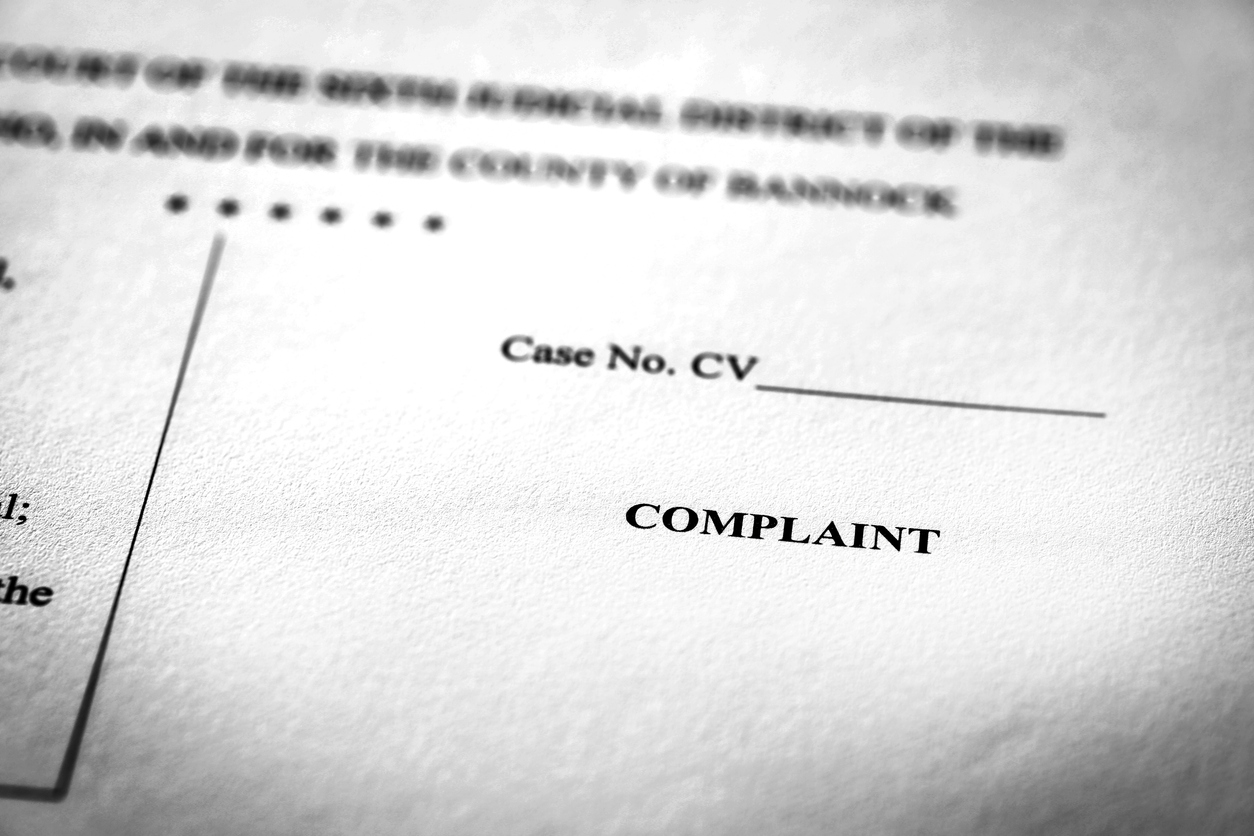Can an insurance adjuster be found personally liable for his or her handling of a claim? A recent Texas federal court considered this question.
Linron Properties v. Wausau Underwriters Insurance Company,1 involved a claim under a commercial property policy for damages related to a storm. The insured sought coverage for the costs of repairs to its property. The insurance company hired an adjuster to investigate the claim.
The insured asserted that the adjuster violated various provisions of chapters 541 and 542 of the Texas Insurance Code, and breach of the duty of good faith and fair dealing, and against the adjuster individually for violations of the Insurance Code. Specifically, the insured alleged that the adjuster violated § 541.060, including § 541.060(a)(2)(A), by retaining an engineer and contractor known for arriving at findings that favored insurance companies, refusing to identify damage to the structure covered under the policy, and failing to respond to the insured’s inquiries regarding the status of the claim and payment. The insured further alleged that the adjuster’s actions were “the producing cause(s) of injury and damage to Plaintiff” and ultimately contributed to Plaintiff suffering “actual damages, economic damages, and consequential damages.”
Under the Insurance Code, an individual who has been damaged by “unfair methods of competition or unfair or deceptive acts or practices in the business of insurance” may bring a cause of action against the “person or persons engaging in such acts or practices.”2
The prohibited conduct includes “failing to attempt in good faith to effectuate a prompt, fair, and equitable settlement of a claim with respect to which the insurer’s liability has become reasonably clear.”3
The Insurance Code defines a “person” as any “legal entity engaged in the business of insurance, including an … adjuster.”4
The court discussed other Texas state and federal courts that have addressed similar claims:
Both the Texas Supreme Court and the Fifth Circuit have recognized that an insurance adjuster may be held individually liable for violating chapter 541 of the Insurance Code. Liberty Mutual Ins. Co., v. Garrison Contractors, Inc., 966 S.W.2d 482, 486 (Tex.1998) (concluding based on chapter 541’s definition of a “person” that an individual employee of an insurance company may be held liable for violations of the chapter, so long as the employee is “engage[d] in the business of insurance”); Gasch, 491 F.3d at 282 (“Texas law clearly authorizes [chapter 541] actions against insurance adjusters in their individual capacities.”) (citing Liberty Mutual, 966 S.W.2d at 486). Following their lead, numerous lower courts, including this Court, have specifically found that an adjuster may be held personally liable for engaging in unfair settlement practices under provision 541.060 of the Texas Insurance Code. See Esteban v. State Farm Lloyds, 23 F.Supp.3d 723, 729–31 (N.D.Tex.2014); Yeldell v. GeoVera Specialty Ins. Co., No. 3:12–CV–1908–M, 2012 WL 5451822, at *4 (N.D.Tex. Nov.8, 2012); Campbell v. Hartford Lloyd’s Ins. Co., 3:05–CV–1180–B (N.D.Tex. Nov. 29, 2005) (Boyle, J., presiding); Blanchard v. State Farm Lloyds, 206 F.Supp.2d 840, 847 (S.D.Tex.2001); Shipley v. Nat’l Fire Ins. of Hartford, No. 3:95–CV–0972–BC, 1998 WL 355493, at *3 (N.D.Tex. June 25, 1998) (Boyle, J., presiding).
Despite the abundance of case law supporting adjuster liability under § 541.060, however, a few courts have recently begun to question the appropriateness of holding an adjuster individually liable for unfair settlement practices under § 541.060. See One Way Investments, 2014 WL 6991277, at *4–5 (N.D.Tex. Dec.11, 2014); Messersmith v. Nationwide Mut. Fire Ins. Co., 10 F.Supp.3d 721, 724 (N.D.Tex.2014). These courts reason that an adjuster cannot be liable for violating those provisions of § 541.060 specifically referring to the settlement or paying of claims, because an adjuster “does not have settlement authority on behalf of [the insurance company]” and his or her “sole role is to assess the damage.” Messersmith, 10 F.Supp.3d at 724; see also One Way Investments, 2014 WL 6991277, at *4–5 (citing Messersmith, 10 F.Supp.3d at 724). But while the courts’ reasoning in these cases has some logical appeal, a closer examination of the precise language of § 541.060(a)(2)(a) and the role played by insurance adjusters in the claims handling process belies their conclusions.
Section 541.060(a) (2)(A) prohibits those engaged in the business of insurance from “failing to attempt in good faith to effectuate a prompt, fair, and equitable settlement.” Tex. Ins.Code Ann. § 541.060(a)(2)(A) (emphasis added). Webster’s defines the word “effectuate” by reference to the definition for “effect,” meaning “to cause to come into being” or “to bring about.” Merriam–Webster’s Collegiate Dictionary 397 (11th ed.2007). The fact that the statute uses the word “effectuate” rather than a word that conveys finality (e.g., finalize), suggests that its prohibition extends to all persons who play a role in bringing about a prompt, fair, and equitable settlement of a claim.
As the persons primarily responsible for investigating and evaluating insurance claims, insurance adjusters unquestionably have the ability to affect or bring about the “prompt, fair, and equitable settlement” of claims, because it is upon their investigation that the insurance company’s settlement of a claim is generally based. See Arana v. Allstate Texas Lloyds, No. 3:13–CV–0750–D, 2013 WL 2149589, at *5 (N.D.Tex. May 17, 2013) (“Adjusters play a role in the investigation, estimation, and settlement of insurance claims.”); Vargas v. State Farm Lloyds, 216 F.Supp.2d (S.D.Tex.2002) (noting that the adjuster “engages in the business of insurance by investigation, processing, evaluating, approving, and denying claims”). As such, a delay in an adjuster’s investigation will undoubtedly cause a delay in the payment of the claim, and an insufficient investigation may well lead to a less than fair settlement of a claim.5
Therefore, in Linron, the court found that the insured’s allegations sufficient to support a claim against the adjuster individually.
1 Linron Properties v. Wausau Underwriters Ins. Co., No. 3:15-CV-00293-B, 2015 WL 3755071 (N.D. Tex. June 16, 2015).
2 Tex. Ins.Code § 541.151 (formerly codified as Tex. Ins.Code, art. 21.21); see Transitional Hosp. Corp. v. Blue Cross & Blue Shield of Tex., Inc., 164 F.3d 952, 955 (5th Cir.1999); Higginbotham v. State Farm Mut. Auto. Ins. Co., 103 F.3d 456, 460 (5th Cir.1997); Crown Life Ins. Co. v. Casteel, 22 S.W.3d 378, 382–83 (Tex.2000).
3 Tex. Ins.Code § 541.160(a)(2).
4 Tex. Ins.Code § 541.002.
5 Linron at *4-5.



